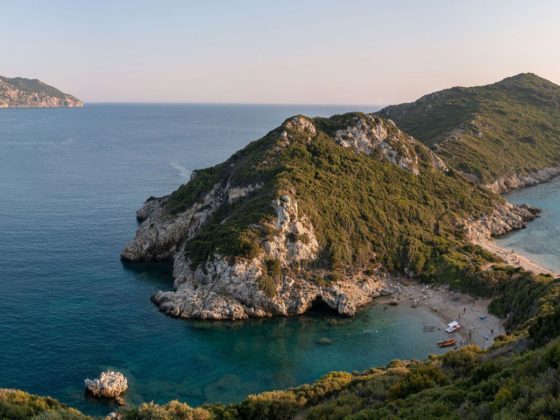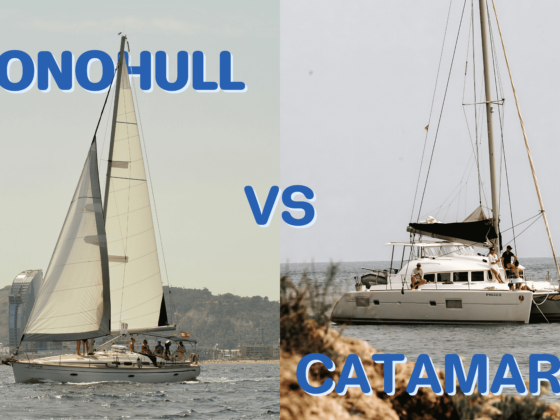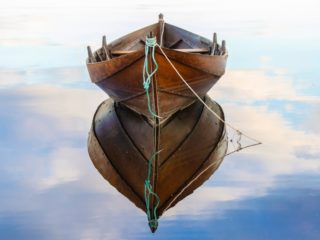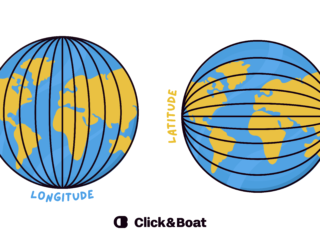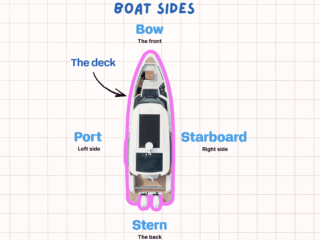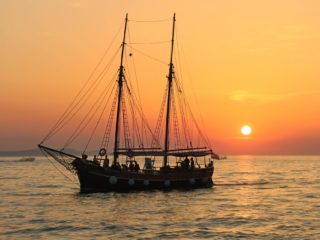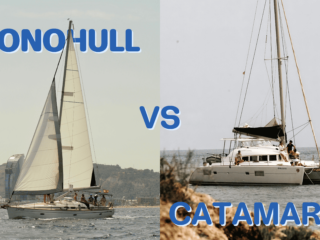Share the post "Sailing in Thailand: Routes, Seasons & Essential Tips"
Warm turquoise water, jungle-clad cliffs and tiny white-sand bays you can only reach by boat… sailing in Thailand feels like it was made for island-hopping. Whether you’re dreaming of a relaxed catamaran getaway from Phuket or a more adventurous route around Koh Samui and Koh Tao, this guide will walk you through the best seasons, routes and practical tips for a stress-free Thailand sailing holiday.
Why choose Thailand for a sailing holiday?
Thailand is one of the most popular sailing destinations in Asia, and it’s easy to see why:
- Year-round warmth – Air temperatures usually sit in the mid-20s to low-30s °C all year, so you’re almost guaranteed “shorts and T-shirt” weather.
- Two distinct sailing areas – The dramatic Andaman Sea (Phuket, Krabi, Phi Phi, Similan Islands) and the more sheltered Gulf of Thailand (Koh Samui, Koh Phangan, Koh Tao).
- Short hops between islands – Many anchorages are only 10-20 nautical miles apart, perfect for easy cruising rather than long ocean passages.
- Great value once you’re there – Mooring fees, meals ashore and activities are typically cheaper than in most Mediterranean hotspots.
Add friendly locals, amazing food and plenty of well-equipped marinas, and you’ve got everything you need for a smooth first (or tenth!) yacht charter.
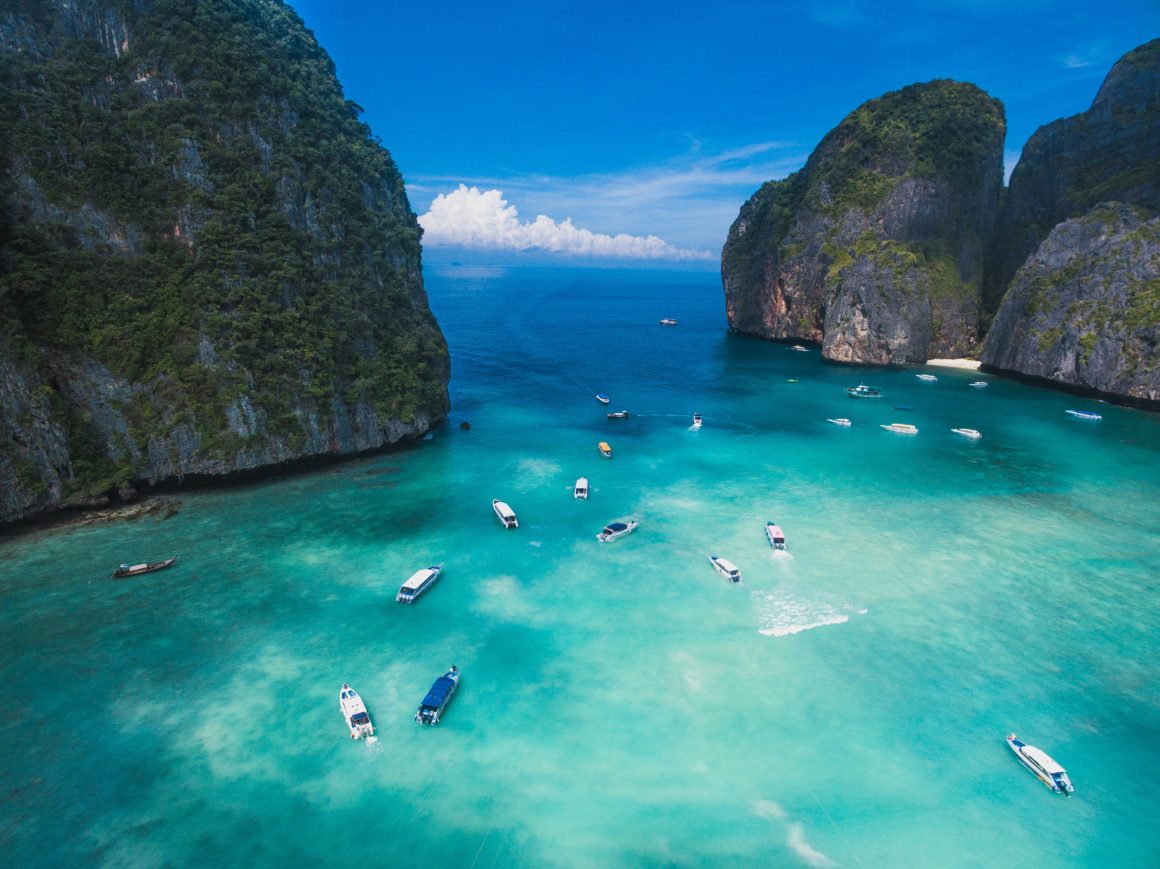
When is the best time to go sailing in Thailand?
You can technically go sailing in Thailand year-round, but there is a clear high season and some regional differences you should know about.
Seasons in a nutshell
Thailand has three main climate periods:
- Cool & dry season: roughly November-February
- Hot season: March-May
- Rainy/monsoon season: June-October
For sailors, the key factor is the monsoon winds:
- Northeast monsoon (roughly Nov-Apr): brings drier, more settled weather to the Andaman Sea, with 5-20-knot winds and generally calm seas. Ideal for comfortable cruising.
- Southwest monsoon (roughly May-Oct): brings more rain, stronger gusts and bigger swells on the Andaman side; some islands and marine parks may close or be less accessible.
Andaman Sea vs Gulf of Thailand
- Andaman Sea (Phuket, Krabi, Phi Phi, Similan Islands):
- Best time for sailing: November to April : dry, sunny, moderate winds, excellent visibility.
- Shoulder months (late April, early November) can still be great but expect more humidity and occasional showers.
- Gulf of Thailand (Koh Samui, Koh Phangan, Koh Tao):
- Best time for sailing: roughly December to June, with especially good conditions January-April : warm, mostly dry, lighter seas for relaxed cruising.
If you’re flexible, aim for December to March for the most reliable “dream postcard” weather.
Classic sailing routes in Thailand
You won’t be able to see everything in one trip, so here are some tried-and-tested routes to help you choose.
1. Andaman Sea from Phuket (5-7 days)
Best for: first-timers, couples, families, island-hopping & scenery. A typical one-week sailing route from Phuket might look like:
- Phuket → Phang Nga Bay
Cruise into a maze of limestone karsts and emerald water, made famous by “James Bond Island”. You’ll find countless sheltered anchorages and opportunities for kayaking through caves and mangroves. - Phang Nga Bay → Krabi / Railay
Anchor off Krabi’s sculpted headlands and visit Railay’s beaches and caves. It’s a great stop for rock-climbing, sunset bars and a bit of nightlife on shore. - Krabi → Koh Phi Phi
Sail to the Phi Phi islands, with their steep cliffs and turquoise lagoons. Maya Bay (on Phi Phi Leh) is heavily protected, with strict rules and sometimes closures : always check the latest regulations with your skipper or charter base. - Koh Phi Phi → Racha Islands / Coral Island
These islands south of Phuket offer clear water and good snorkelling, perfect for a chilled last day before heading back to the marina.
From Phuket you can also plan longer itineraries (10-14 days) that reach Koh Lanta, the Similan and Surin Islands, which are known for outstanding diving and snorkelling.
2. Krabi & Koh Lanta loop (5-7 days)
Best for: a slightly quieter vibe than Phuket, with plenty of anchorages. Start from Krabi or Ao Nang and combine:
- Phra Nang & Railay beaches
- The islands off Krabi (Koh Poda, Chicken Island)
- Koh Lanta’s long, relaxed beaches and small bays
- Optionally, the Trang islands further south for a wilder feel
Distances are short and there are enough protected spots to hide from stronger winds.
3. Gulf of Thailand: Koh Samui, Phangan & Tao (5-7 days)
Best for: calmer seas in our European summer, easy sailing, snorkelling. From Koh Samui you can:
- Sail to Ang Thong National Marine Park, a cluster of green islands with lagoons and spectacular viewpoints.
- Head to Koh Phangan for laid-back beaches on the north and east coasts.
- Continue to Koh Tao, loved for its dive sites and colourful coral.
You’ll find plenty of moorings and anchorages, and the sea is often gentler here during May-August compared with the Andaman side.
The best beaches in Thailand to discover by boat
Phra Nang Beach (Railay, Krabi)
A stunning strip of white sand backed by cliffs and caves, with a small shrine tucked into the rock. It gets busy with day-trippers, so arriving early by yacht or catamaran means you can enjoy the calm morning light before the crowds.
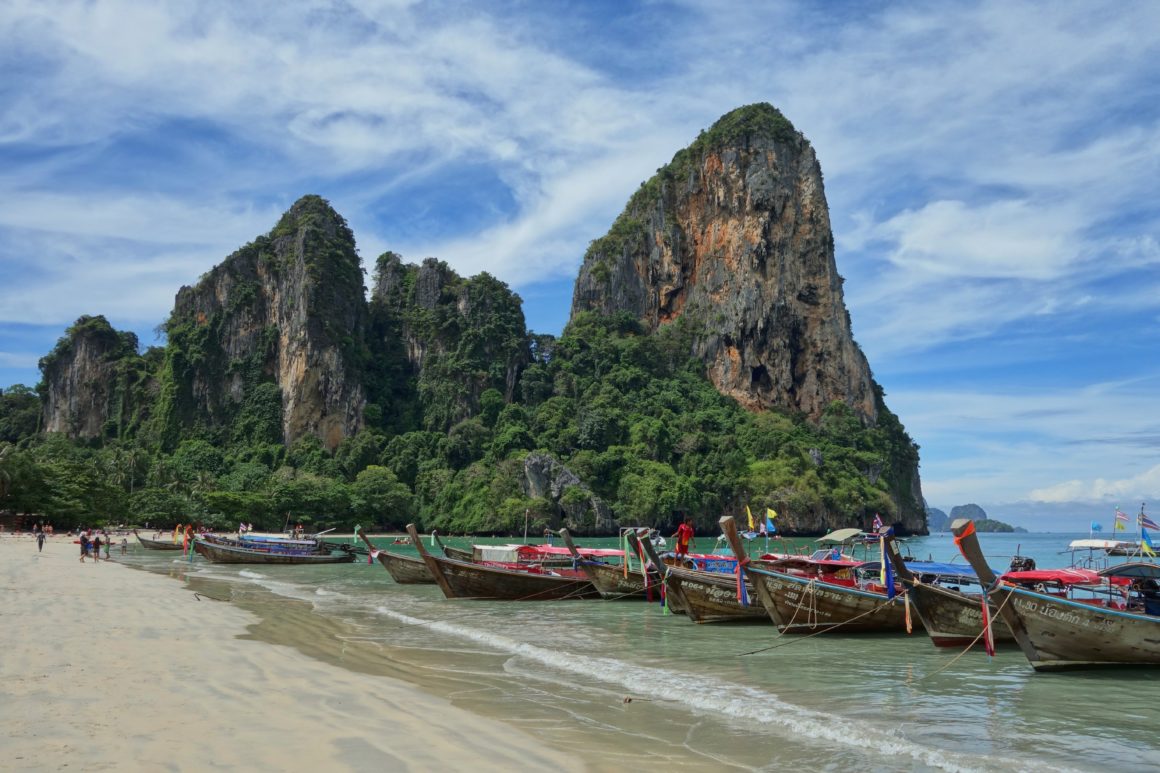
The beaches of Koh Phi Phi
- Maya Bay (Phi Phi Leh): iconic, but strictly controlled to protect the environment – expect designated mooring zones, limited access hours and sometimes complete closures. Ask your skipper or charter company to brief you on the current rules.
- Loh Dalum & Long Beach (Phi Phi Don): easier to access, with clear water for swimming and snorkelling right from the boat.
Freedom Beach & nearby bays (Phuket)
Just a short sail from Patong, Freedom Beach feels surprisingly secluded, with lush hills, soft sand and good snorkelling. Nearby small coves on Phuket’s southwest coast are great for sunset anchorages.
Racha Yai & Racha Noi (south of Phuket)
These islands are all about crystal-clear water and snorkelling with plenty of marine life. Anchor in the main bay of Racha Yai for postcard-worthy views and a couple of relaxed beach bars.
Similan Islands
Further north off Khao Lak, the Similans are a national park famous for their huge boulders, white sand and some of Thailand’s best diving. Access is seasonal and heavily regulated; if your charter includes them, you’ll be rewarded with transparent water and starry nights at anchor.
Ang Thong Marine Park & hidden coves of the Gulf
Around Ang Thong, Koh Phangan and Koh Tao, you’ll find dozens of small bays perfect for dropping the hook: tiny sand spits, palm-fringed beaches and quiet evening anchorages once the day-trip boats head home.
Wherever you sail, talk with your skipper or base manager about current park rules, mooring options and protected zones – things can change from one season to the next.
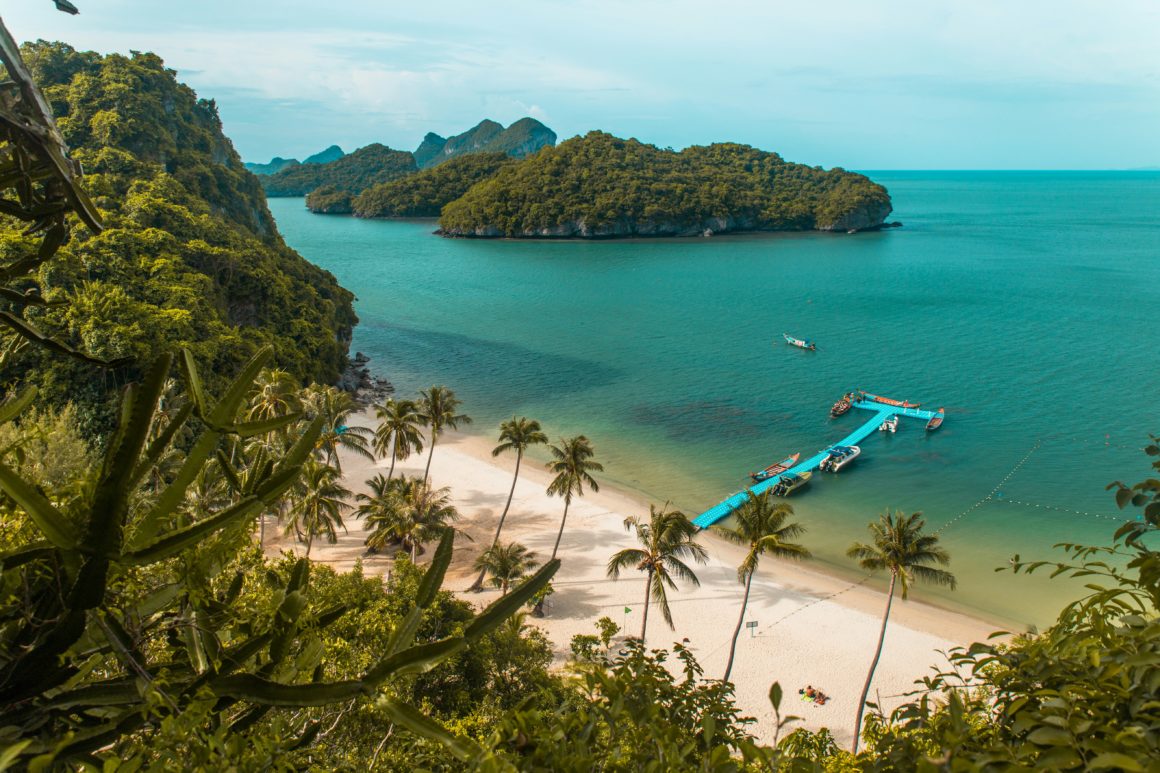
Essential tips for sailing in Thailand
Choosing your boat & charter style
Before you start plotting every bay on the map, think about the vibe you want on board. A catamaran is all about space and stability, with wide decks and a shallow draft that’s perfect for those shallow turquoise bays. A sailboat feels a bit more sporty and traditional, heeling gently under the wind and usually coming at a lower price for the same length.
Licences, paperwork & local rules
If you’re thinking about a bareboat charter, you’ll usually need an internationally recognised licence (such as ICC or equivalent) plus a short sailing CV. If that’s not quite enough, most fleets will simply recommend adding a skipper instead of saying no to your trip.
Some of Thailand’s islands are protected marine parks, so expect park and entry fees in areas like Phi Phi, the Similan Islands or Ang Thong. Rules can include using mooring buoys instead of anchoring, staying out of certain zones and respecting daily visitor limits.
Before you leave the marina, it’s worth double-checking:
- Which areas require park fees and how they’re paid
- Where you’re allowed to anchor vs. where buoys are mandatory
- Any seasonal closures or special rules for your planned route
Weather & safety basics
Even if the sky is blue when you cast off, make it a habit to check the marine forecast every day. In the tropics, squalls can appear quickly, especially in the rainy season or when the monsoon is changing.
Try to plan your sailing so you’re dropping anchor well before sunset. It gives you time to find good holding, check depths and spot any rocks or coral heads around you. At night, keep a close eye out for fishing boats and unlit buoys marking nets or traps.
During the handover, take a few minutes to go through the safety gear: lifejackets, VHF, flares, first-aid kit and how to contact the coastguard. It’s not the most glamorous part of the trip, but it’s the one you’ll be glad you did.
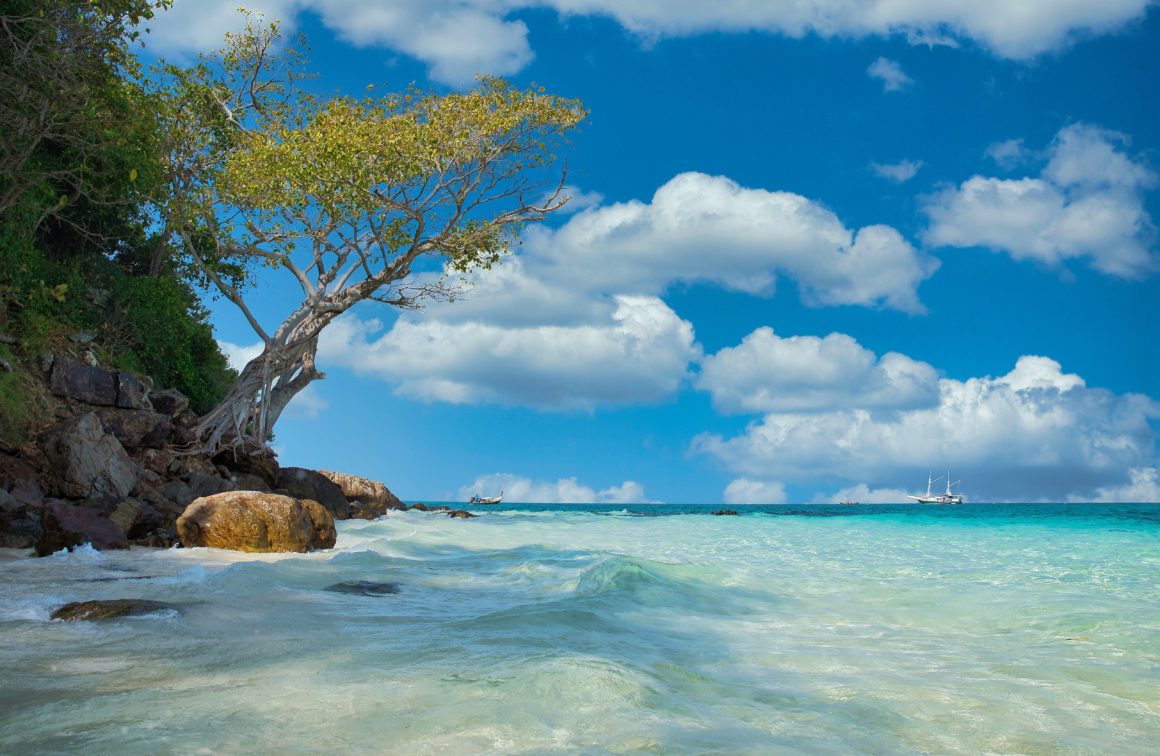
What to pack (without overpacking)
Life on board is barefoot and relaxed, so you really don’t need much. Soft bags are easier to store than suitcases, and quick-drying fabrics are your best friends between swims.
A simple packing list could include:
- Light clothes, swimwear and a thin long-sleeve top for sun protection
- Hat, good sunglasses and reef-safe sunscreen
- Reef shoes for rocky beaches and dinghy landings
- A small dry bag for phones, cameras and wallets during dinghy trips
Most boats come with basic snorkelling gear, but if you love being in the water, bringing your own mask and fins is always a good idea. You can also check our boating checklist
Sail responsibly & respect local culture
Thailand’s bays look like a postcard because people work hard to protect them. Avoid throwing anything overboard, cut down on single-use plastic and use eco-friendly products on board when you can. Never anchor on coral; choose sand patches or mooring buoys instead.
On land, you’ll quickly notice how important respect is in Thai culture. Cover shoulders and knees when visiting temples, remove shoes where requested and keep beachwear for the beach.


